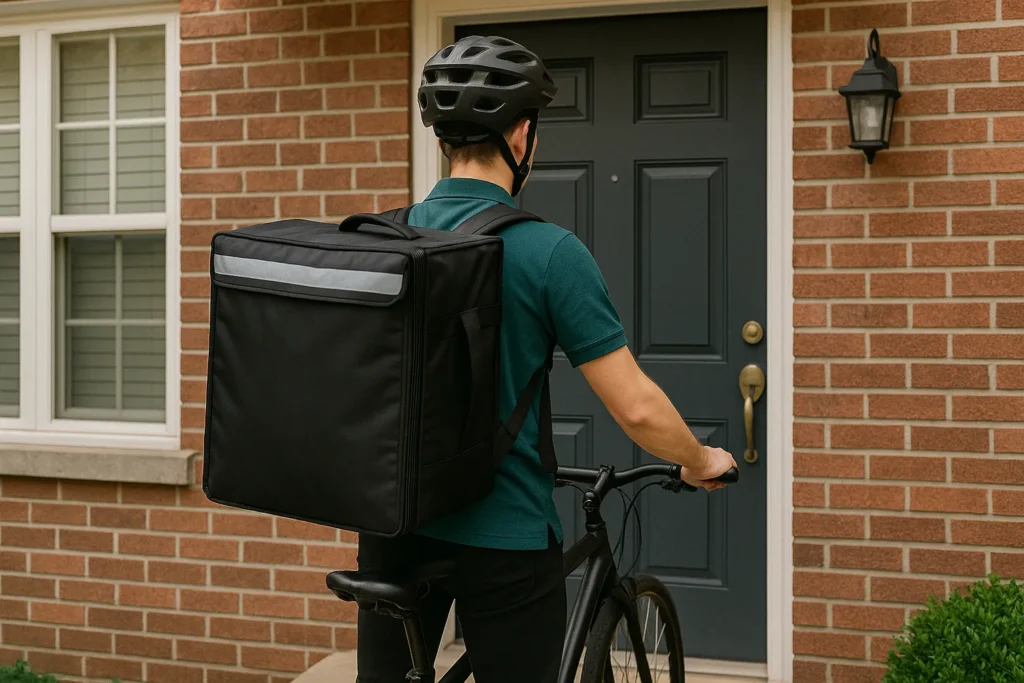Studying abroad can feel like a big move, and it is. You leave behind what’s familiar and jump into a completely new culture, new systems, and sometimes, a new language. But this change is exactly what helps you grow.
You’ll start noticing how you respond to stress, how you make decisions on your own, and how you fit into unfamiliar surroundings. That’s self awareness in action and it’s just the beginning.
In this article, we’ll explore how studying abroad helps build practical life skills, shape emotional resilience, and push your personal growth forward in ways that last.
Ready to see what that looks like in real life? Let’s get started.

From Cooking to Commuting: How You Grow Without Realising It
When you move overseas to study, you expect to learn in the classroom. What catches most people off guard is how much they learn outside of it. Sorting out meals, travel, and money doesn’t sound like much at first.
But those daily decisions teach you to think, take care of yourself, and stay steady when things get tricky. Over time, they help build habits that lead to lasting personal growth.
- Cooking your own food: You’ll probably start with toast and instant noodles. But little by little, you begin to plan your meals, shop with a budget, and find simple recipes that actually work. You’re not just learning how to cook. You’re picking up useful habits that build independence and give you more control over your day.
- Figuring out transport: Using buses or trains in a new place takes effort. You’ll misread signs, miss stops, and take the wrong line more than once. But you improve fast. You get better at checking times, preparing for delays, and staying calm when plans change. This is how practical life skills grow.
- Handling your money: Paying in another currency can feel strange at first. You learn how to check prices, avoid fees, and plan for small costs. That hands-on learning builds your numeracy skills and sharpens how you make decisions.
- Solving small problems: Booking appointments, asking shop staff for help, or finding the nearest chemist, these moments test you. Each one helps you trust yourself a bit more.
These everyday tasks might seem simple, but they teach essential skills. And that’s where real self improvement begins.
Becoming Comfortable With the Uncomfortable
No one feels ready the first time they step into a flat full of strangers or try to explain a problem in another language. These moments are awkward, uncomfortable, and sometimes frustrating. But they’re also where personal development starts.
Living in a different country forces you to think differently. You’re making decisions without the usual support around you. You choose what to say, when to speak up, and how to fix mistakes you’ve never had to deal with before. It’s not always smooth. But every time you get through one of these moments, your self-confidence takes a step forward.
At first, you might second-guess yourself a lot. That’s normal. What matters is learning how to keep going anyway. You begin to see that discomfort isn’t something to avoid. It’s part of the process. It’s where personal growth takes root.
Over time, you get used to the feeling of being unsure. You learn how to stay calm in the middle of uncertainty. You realise that stepping out of your comfort zone gets easier the more you do it.
You become someone who knows how to keep moving forward, even when the situation feels unfamiliar.
Choosing Between Direct Enrolment and Structured Programs
When considering studying abroad, you have two main options: direct enrolment or structured programs. Each path offers different experiences and levels of support. Let’s know more about this.
- Structured programs are often organised by your home university or through third-party providers. They typically handle logistics like course selection, housing, and support services. This option can be ideal if you prefer a guided experience while immersing yourself in a new culture.
- Direct enrolment, on the other hand, involves applying directly to an overseas university. This route offers more independence, allowing you to choose your courses and manage your living arrangements. It’s suited for students who are confident in facing new environments and looking for a more autonomous experience.
However, data from the Australian Universities International Directors’ Forum (AUIDF) indicated that 34 Australian universities reported on their students studying overseas. This highlights the growing interest among Australian students in gaining international educational experiences.

Both options offer valuable opportunities for personal and academic growth. Consider your preferences and goals to decide which path aligns best with your study abroad aspirations.
Mental Strength Isn’t Always Built in a Classroom
Long-distance travel can spark excitement, but it also brings unexpected emotional pressure. Adjusting to new social norms, unfamiliar routines, and the weight of academic responsibilities far from home can stretch you in ways you’ve never experienced. This pressure isn’t always visible, but it has a powerful impact on how you grow.
Studying overseas pushes you into moments that test your patience, identity, and energy. The emotional ups and downs you face don’t feel like lessons at the time, but they are. You learn to spot your limits, manage stress, and care for your mental health more thoughtfully. That’s real self-development.
Support makes a difference. Staying in touch with friends and family, joining student groups, or talking to someone when it gets hard, these steps build resilience. They help you handle the challenges that come with stepping out of your comfort zone.
According to AIHW research in 2023, mental health conditions were the leading cause of disease burden among Australians aged 15–24. Anxiety disorders topped the list for females, and suicide and self-inflicted injuries for males. That context matters, especially for international students balancing emotional well-being with academic pressure.
So, growth doesn’t always look like achievement. Sometimes, it’s simply learning how to keep going. You come through it stronger, clearer, and better prepared for what comes next.

The Experience Ends, The Growth Doesn’t
By the time you come home, you’re not the same person who left. You’ve made choices on your own, solved problems without help, and learned how to adapt to the unexpected. That growth doesn’t fade when the program ends. It shows up in the way you handle work, relationships, and everyday life.
The self-growth you experience abroad builds your confidence in quiet but powerful ways. You carry that strength with you into every new step, into jobs, conversations, challenges, and plans you never thought you’d face so calmly.
Studying abroad doesn’t just add to your education. It changes how you think, feel, and move through life. And those changes keep building long after you unpack your bags.
This is how you reach your full potential. You try. You grow. And you come back ready for whatever comes next.
If you’re planning to study outside Australia, Highlands Golfcourse is worth a visit, since we have been in this field for over 10 years with excellent track records. We’re ready to make your dreams come true.
